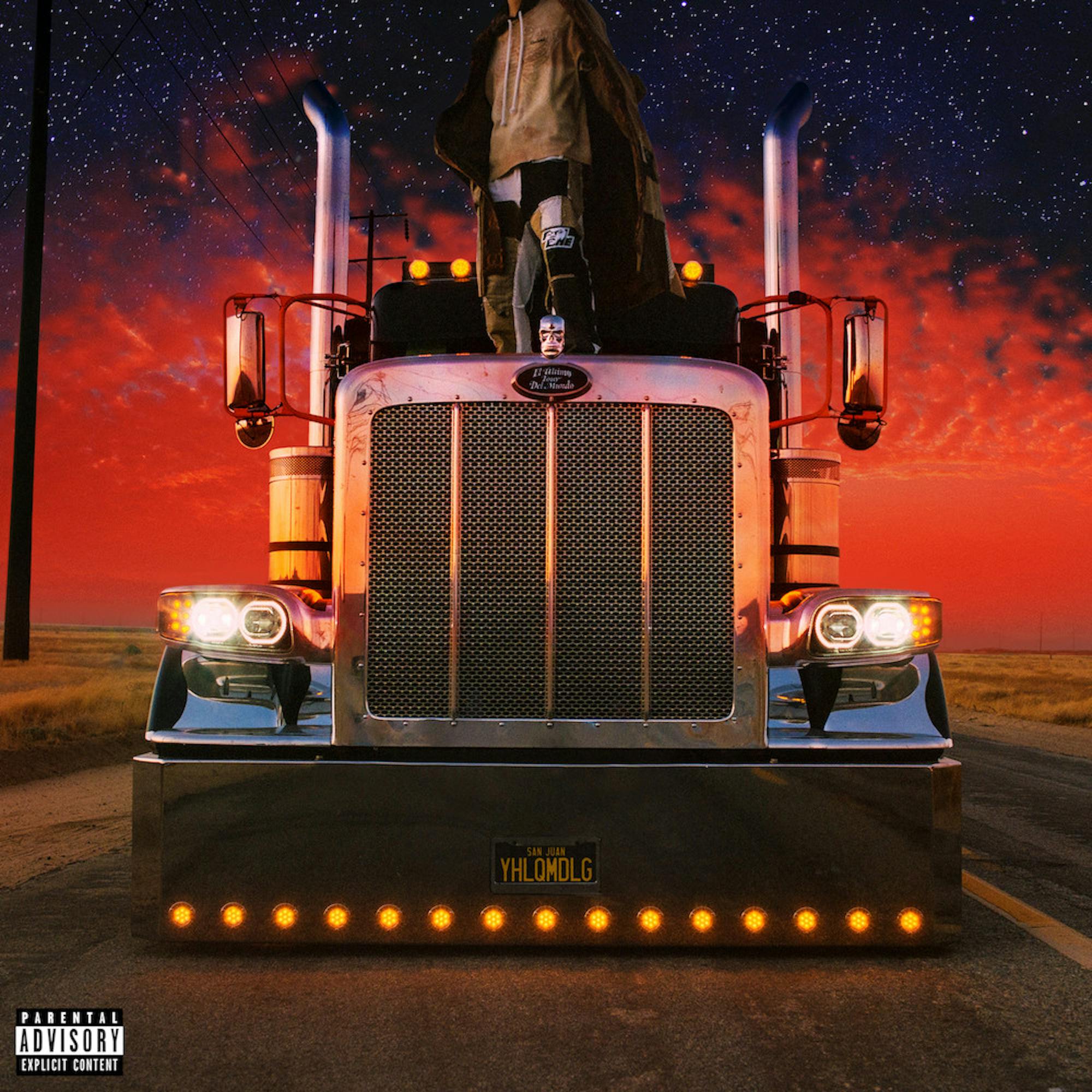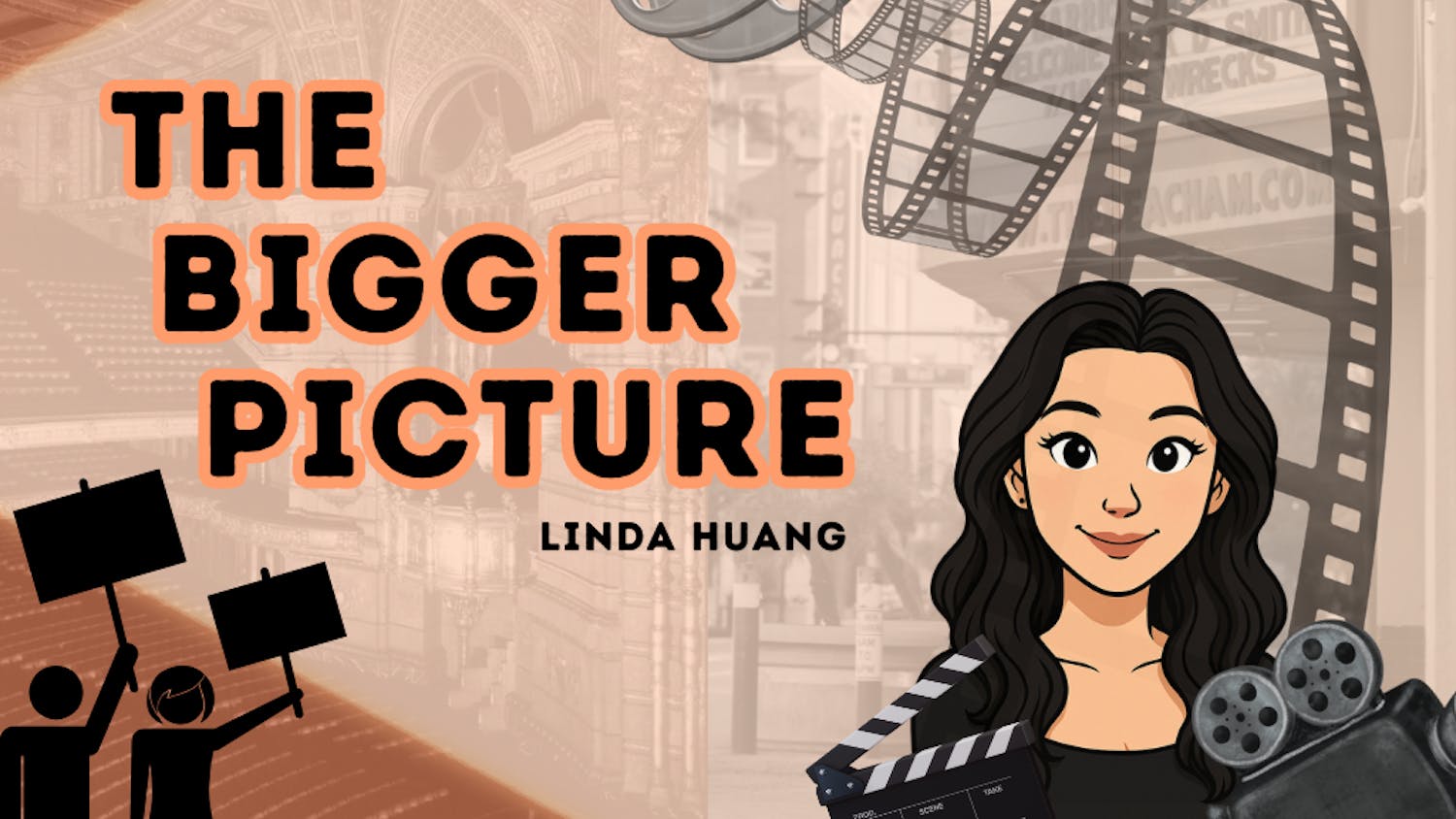The moment has arrived for the girl within the top 0.05% of Bad Bunny’s over 51 million monthly Spotify listenersto write obsessively about her love for his music and especially for his most recent Nov. 27 album, “EL ÚLTIMO TOUR DEL MUNDO.”
For those unfamiliar with Bad Bunny, he is the Latin trap superstar who has taken the world by storm. Since his debut in 2016, he has risen meteorically. Responsible for American chart-toppers like “MIA (feat. Drake)” (2018) and “DÁKITI (feat. Jhay Cortez)” (2020) among countless others, he has made a name for himself in American music that only a few Latin American performers can parallel.
His first album“X 100PRE” was released in 2018, though much of his career has been defined by his monumental 2020 album “YHLQMDLG.”
When he is not challenginggender roles, performing impromptu "Toy Story"skits on Instagram or earning exclusivecollaborations with Adidas, he is writing incredible music. With a rumbling voice and a distinct flow, each of his albums to date has been impressive and addictive. I came into “EL ÚLTIMO TOUR DEL MUNDO,” or “The Last Tour of the World,” with high hopes and was not disappointed.
In the wake ofrumors of his retirement and the earth-shattering success of his February “YHLQMDLG,” many feel that “EL ÚLTIMO TOUR DEL MUNDO” doesn’t measure up to the sheer brilliance of “YHLQMDLG,” and I would agree, but I would argue that it was never supposed to. Spotify's most-streamed artist of 2020 takes us in an entirely different direction with “EL ÚLTIMO TOUR DEL MUNDO” and proves that he is as versatile as he is talented.
From the opening trap track, “EL MUNDO ES MÍO,” it is yet unclear the surprises in store on the rest of the album. Maintaining much of his familiar reggaeton style through the second track, “TE MUDASTE,” and returning to another trap song on the third, “HOY COBRÉ,” we finally hit my tentative favorite song from the album, “MALDITA POBREZA.” Part emo rock, part trap and focusing at once sarcastically and truthfully on the desire for more money — one lyric translates to, “To buy you all that Gucci and a house in front of the sea / So that you teach me to swim,” — its unique guitar features, heavy bass and hi-hat patterns all meld seamlessly into a song that I could dance to for hours.
Immediately following is a long-awaited reggaeton collaboration with Spanish singer ROSALÍA “LA NOCHE DE ANOCHE.” This track is followed by a warbling guitar intro for the at once fast-moving and melancholy “TE DESEO LO MEJOR,” which signifies that this album is officially one characterized by rock — the electric guitar, specifically.
Next is one of the two songs from the album that currently has an official music video, characterized by appearances from the likes of Ricky Martin,Ryan García and Sofia Vergara. “YO VISTO ASÍ” is another rock-trap fusion with all of Bad Bunny’s traditional charisma and talent for forceful one-liners like one that translates to “I dress like this, I'm not going to change / If you don't like it, you don't have to look.” The repetitive guitar riff has become the background noise to my morning routine, and I am obsessed with the video and the song itself.
“YO VISTO ASÍ” leads to a low-key electric guitar-guided “HACIENDO QUE ME AMAS,” but the next song, “BOOKER T,” named for the WWE wrestler, is quickly becoming a cult-classic ripe with the sports and gaming references that have characterized many of Bad Bunny's past songs. Then there is another one of my favorites, “LA DROGA,” the already chart-topping “DÁKITI (feat. Jhay Cortez),” the emotional guitar ballad “TRELLAS,” a pop song in “SORRY PAPI (feat. ABRA)” and the short trap track “120.”
Penultimately, there is “ANTES QUE SE ACABE”: a love letter to a career that might be put to rest with this album. Crooning about enjoying life and dying happy, Bad Bunny reminds us of this importance through a lyric that translates to “Hug your brother and don't look at color, here we're all equals / How much you love, that's what you're worth.”
A heartfelt exit, and yet it is not the final track. Closing the album is “CANTARES DE NAVIDAD,” an early 1950s Christmas song by Bolero group Trio Vegabajeño, which, like Bad Bunny, comes from Vega Baja, Puerto Rico. The song is somehow more wholesome than anything Bad Bunny himself could have written.
“EL ÚLTIMO TOUR DEL MUNDO” saw tears (mine, at least), rock-trap bangers and numerous surprises. Maybe it wasn’t his best album. Maybe there wasn’t a classic reggaeton track like “Safaera” from “YHLQMDLG,” but it will still be at the top of my Spotify Wrapped next year because Bad Bunny has proven once again that there is nothing more remarkable, nothing more intriguing or impressive, than making good music and staying true to your artistic vision.






